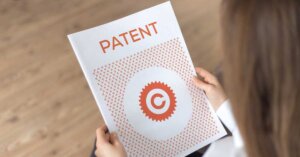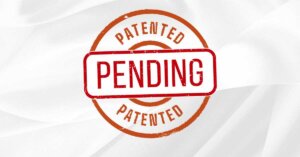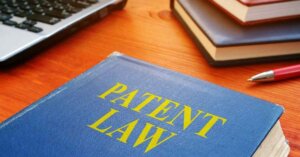This month, the latest news from the world of patents was a patent dispute between two well-known technology companies, Lenovo and Asus. Lenovo filed a lawsuit against Asus based on infringement of four patents owned by Lenovo: communication wireless and sliding finger trackpads and a cushion patent that allows the notebook to be converted into a tablet form. Lenovo stated that they found infringement of these technologies in the ASUS Zenbook Pro and Zenbook laptops Flip 14.
Brief Chronology of the Case
On Wednesday, November 15, 2023, Lenovo filed a lawsuit against rival computer company Asus, alleging that the company had infringed four of its patents. The four patents are all related to features in Asus Zenbook laptops, such as wireless communication and finger trackpad sliding, as well as a cushion patent that allows the notebook to be converted into tablet form. Lenovo demanded a jury trial and asked for undisclosed damages related to direct and indirect patent infringement.
According to Lenovo’s deputy general counsel and head of intellectual property, John Mulgrew, Lenovo needs to emphasize its patent portfolio more actively. In addition, the company also needs to clarify its role as a licensee and as a licensor.
The reason is that Mulgrew considers that more and more licensors ignore the FRAND license provisions and rely on threats to take royalties from licensees. This consideration is also one of the reasons Lenovo sued Asus.
As this case is still in the legal process in court, there is no official ruling from the judge. Therefore, this article will discuss the viewpoint of patent law in Indonesia on this issue.
The View of Patent Law in Indonesia
In this case, there is a core legal issue: There is a company that produces similar trade goods with products owned by other companies that patents have protected.
Under the principles of patent law, if the manufactured merchandise is an invention whose patent protection period has not expired, then the party making the similar product must seek permission from the company whose product it is copying. The approval sought is referred to as a license.
Article 1, paragraph 11 of the Patent Law states that a license is permission granted by a patent holder, either exclusive or non-exclusive, to a licensee based on a written agreement to use a Patent that is still protected within a certain period and conditions.
Then, in Article 76, paragraph (1) of the Patent Law, it is stated that the Patent Holder has the right to grant a license to other parties based on an exclusive or non-exclusive license agreement to carry out the acts referred to in Article 19.
Article 19 of the Patent Law states that:
(1) The Patent Holder shall have the exclusive right to enforce his Patent and to prohibit any other party who, without his consent:
a. in the case of a product Patent: to make, use, sell, import, lease, deliver, or make available for sale or lease or delivery the Patented product;
b. In the case of a process, use the production process granted by the Patent to make goods or other acts as referred to in point a.
(2) The prohibition of using the production process granted a Patent, as referred to in paragraph (1) letter b, shall only apply to the import of products solely produced from the use of the process granted Patent protection.
(3) In the interest of education, research, experiment, or analysis, the prohibition, as referred to in paragraph (1) and paragraph (2), may be exempted to the extent that it does not harm the reasonable interest of the Patent Holder and is not commercial.
Conclusion
When a company wants to produce similar or similar goods to other companies’ products, then that’s where the company must be careful and pay attention to the legal aspects of existing intellectual property. Intellectual property will protect inventors from other parties who want to use their inventions without permission.
The case between Lenovo and ASUS shows the importance of conducting a patent search and asking permission from the previous patent owner when another company wants to produce a similar product. It aims to prevent the company from legal disputes and losses. Therefore, a company needs to be able to work with a trusted legal service provider. Besides being more practical, using legal services will ensure that the intellectual property assets in your company are well monitored.
If you believe that Indonesia is the right market for your product or service, then Am Badar & Am Badar IP Law Firm is the right partner to assist you in navigating through the nation’s IP ecosystem.
Our service not only encompasses the entire registration process but we also provide monitoring services – monitoring over misuses of your registered Intellectual property by irresponsible parties.
Am Badar and Am Badar IP Law Firm is the ideal place for Partners who need services or consultations related to Intellectual Property. Contact us via ambadar@ambadar.co.id. We will provide the best solution according to your situation.
References:






